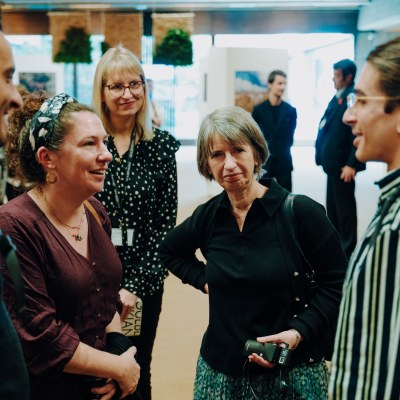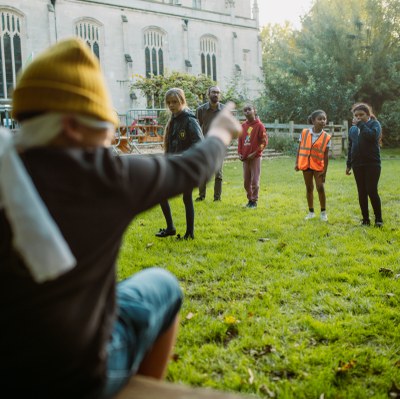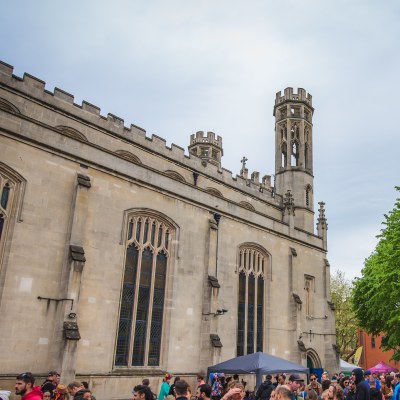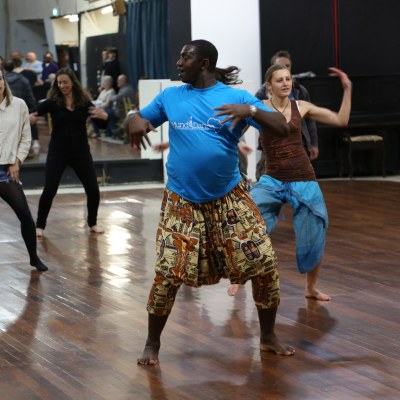In Focus: Festival of Flourishing Regions 2025
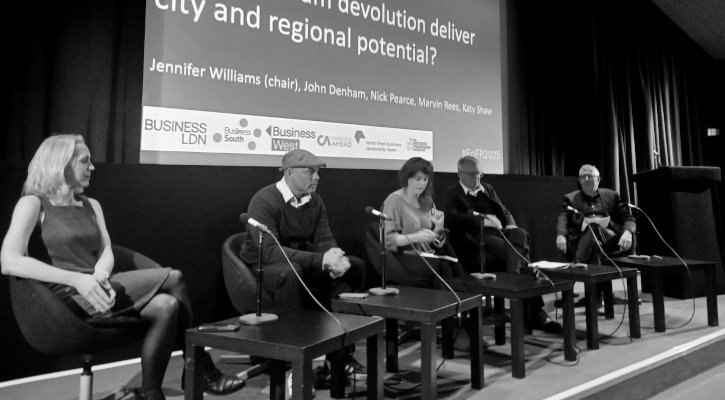
We recently attended the Festival of Flourishing Regions 2025 (#FoFR2025). The Festival aims to promote and celebrate the role that cities and regions play in the economy and prosperity of the country and look at how regions can drive the growth agenda of the government. Read Emma Harvey, CEO of Trinity Community Arts review of the event:
“At the heart of this week’s Festival of Flourishing Regions 2025 (#FoFR2025) at the Watershed was a recurring question: Who truly benefits from growth? Economic expansion and large-scale developments continue to bypass existing communities, leaving people clinging desperately to their sense of place, fearful of disruption. Nimby-naysayers, blocking our prosperity.
Bristol City Council leader Tony Dyer began with early reflections – and perhaps a warning – about the risks of growth without stability and prosperity without equity. He highlighted the need to shift toward preventative public services that operate proactively rather than merely reacting to crises. This was echoed by experiences of Stephen Peacock, the leader of the Combined Authority, who highlighted the real pressures of escalating expenditure on temporary accommodation hindering efforts to implement permanent solutions.
Palie Smart from the University of Bristol captured a key theme: The power of powerful relationships… only when we get together can we tackle complex challenges. But, how do we come together to build a vision for region that flourishes for us all when so many are paralysed by the continual threat of precariousness? As Andy Westwood surmised, people are putting more in than they’re getting out”. Why should any of us care about an empty promise of productivity when wealth accumulates at the top while wages stagnate in the middle and those at the bottom are propped up by a living wage that can’t keep pace with an out of control rental market? Why should I care who’s in charge if power remains centralised and only deepens the majority’s sense of powerlessness? As Arrested Development’s lyrics go, the word ‘cope’ and the word ‘change’ is directly opposite, not the same.
"Citizens for Culture is an opportunity to do just that – in a region of rural and urban wealth and deprivation how do we build a shared identity, weaving and crafting an authentic narrative to define our place in the world." Emma Harvey
If we want real progress, we need to move beyond survival and towards meaningful transformation.
Iain Gray spoke about the need for innovation and the importance of setting clear priorities and pursuing them ruthlessly and talked fondly of memories of the 2012 Olympics. While many remember this fondly for artistic ceremonies celebrating the best of British culture, I can’t help but think about what that ruthlessness looked like in reality; the permanent loss of century-old covenanted land, the Manor Gardens allotments. I think about that and wonder, more than a decade on, do people still feel the benefits of that cement walkway in the same way as the communal land it replaced?
This tension between social mobility, productivity and asset-based community development ran through many discussions. Harriet Fear touched on the power of new ideas in old buildings with an example of a startup thriving in a former pigsty. It was a reminder that we overlook the value of what we already have we lose those in unusual corners and crevices where minds connect, imaginations are ignited and ideas are formed.
From public infrastructure projects, the much lambasted HS2 to regional funding pots and the constant churn of central government infrastructure funding pots locked needlessly to short-term political cycles. That churn of out with the old in with the new. 14 growth strategies in 16 years. Yet here we are, no closer to a solution that works for everyone.
Jim O’Neill places some of that blame at the foot of the merciless 247 news cycle that reduces everything to 15 seconds of infamy. As does former Bristol Mayor Marvin Rees who talked of the toxic trolling limiting our ability to attract and keep people even wanting to work in a political space.
With so much focus on productivity centred around, aerospace, tech, and defence, what actually makes a city like Bristol ‘sticky’ place people want to call home? It’s all about food and friends and gigs and carnivals and sound systems and heritage, and culture and and and…yet if it wasn’t for Katy Shaw who said, “culture isn’t an add-on—it’s intrinsic to regional growth strategies”, you’d be forgiven for thinking our route to happier healthier lives could be delivered by chips and wings and missile nose cones.
When mulling over our collective lot, we can all be too good at talking about what we don’t have. The poverty of capacity, devolved funding for culture that still remains fragmented, or the challenges in land use, where freehold sites are given away for developments never realised. Using your powers wisely, has never been more important. This tied directly into our work with partners to deliver Roots of Resilience, which explores how community buildings can be leveraged by the voluntary sector to safeguard spaces, creating a holistic approach that blends the old with the new.
If we start from a place of what we do have – our wealth of talent, ideas skills, assets – as investment decisions shift to combined authorities – we can try to ensure that investment isn’t just about top-down economic development but enables communities to shape their own futures. As Nick Pearce spoke of the urgent need to structure deliberative democratic processes as part of these devolved regions – ensuring citizens have a direct say in how their regions evolve – I was bouncing out my seat ready to shout about our work to deliver the first regional Citizens’ Assembly for Culture, in September 2025 – giving people a stake in shaping the future of devolved investment in the creative and cultural industries.
In a fractured system where few understand how regional authorities operate, John Denham noted, rarely do we get a chance to sit down and ask, what do we have in common? Citizens for Culture is an opportunity to do just that – in a region of rural and urban wealth and deprivation how do we build a shared identity, weaving and crafting an authentic narrative to define our place in the world.
This isn’t about growth. It’s about betterment. Creating places where people can hope for more than just to survive. Where economic strategies don’t just serve a privileged few but create lasting, equitable prosperity.
The Festival of Flourishing Regions made it clear: the power to shape our future exists, but only if we have the courage to grab hold of it.”
Emma Harvey, CEO Trinity Community Arts
#FoFR2025




